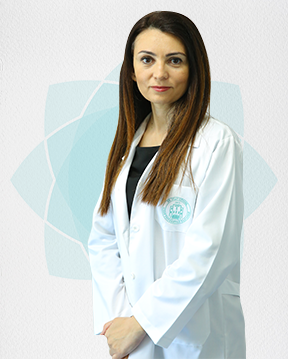
Dr. Suat Günsel University of Kyrenia Hospital, Pediatrics Specialist Assoc. Prof. Dr. Nilüfer Galip Çelik made a statement about summer diseases and the things that need to be done especially during the days when the heat affects us more.
Sun stroke:
In order to protect ourselves against sunstrokes, it is necessary to avoid being outdoors between 10.00 and 16.00 where the sun rays are the strongest and which causes direct exposure to sunlight, also we should consume plenty of fluid and use protective sun cream with at least 30 protection factors.
Sun burn;
In the case of symptoms such as redness, pain and burning in the skin, first degree sunburn occurs. In this case, only moisturizing creams and painkillers can be used to nourish the skin and keep it moist. In case of skin swelling and blisters filled with water, there is a second degree burn and it may be necessary to apply to a health institution and apply dressing for the burn.
Rash
Rash which is very common is a small red, itchy skin lesion which appears in more sweaty parts of the body, especially in the neck and shoulders, which are caused by excessive heat and blockage of sweat glands. The most effective method of treatment is bathing with warm water every day and keeping that area as dry as possible. In addition, it is necessary to avoid the use of creams that prevent the skin to breathe and may lead to clogged pores.
Summer diarrhea (Gastroenteritis):
Drinking water and water used to wash food must be obtained from clean water sources in order to prevent stomach and intestinal infections. Food poisoning caused by bacteria, especially in foods that contains milk, cream, mayonnaise and meat which are stored at the wrong temperature or kept open for too long, manifests itself with vomiting and abdominal pain followed by diarrhea. Loss of water and electrolytes should be treated with intravenous fluids. Anti-diarrheal and anti-nausea medicines should be avoided.
Diseases that can be transmitted from pools:
One of the infections transmitted by swimming in the pool is eye diseases. Conjunctivitis with redness, burring, water eyes and discharge is treated with antibiotic eye drops. Excessive chlorine, sometimes used for disinfection of pools, can cause allergic redness, burning and stinging due to irritation in the eyes. Pool goggles should be used to protect against these situations, eyes should be avoided contact with chlorinated water for a long time. Another infectious disease that is easy to spread in the pool is superficial fungal diseases. In addition, it is known that viral diseases such as hand-foot-mouth disease, which are frequently encountered in recent years, can be spread by fecal-oral transmission. For this reason, cleaning and disinfection of the pools is of great importance.